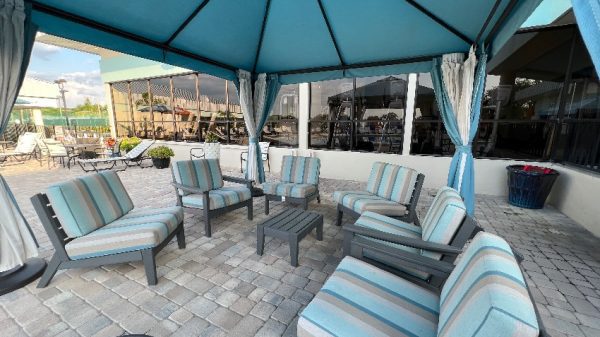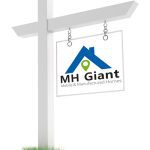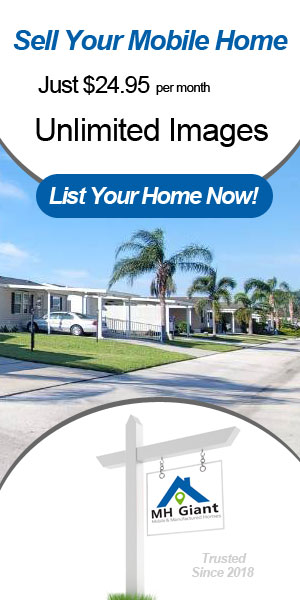Table of Contents
Understanding Mobile Home Park Lot Rent
Mobile home park lot rent is the fee that residents pay to occupy a designated lot within a mobile home park. Unlike traditional homeownership, where an individual owns both the house and the land it sits on, mobile home park residents typically own their homes but lease the land from the park’s management or landlord.
This rent is usually charged on a monthly basis and covers the cost of leasing the land where the mobile home is placed. For many individuals and families, this arrangement offers a more affordable and flexible housing option compared to conventional homeownership.
What Does Mobile Home Park Lot Rent Typically Include?
Mobile home park lot rent generally includes several key components. While the specific inclusions can vary depending on the park, most lot rents cover the following items:
- Lease of the Land:
- The primary component of lot rent is the lease for the land itself. Residents pay for the right to occupy a specific lot within the park, where their mobile home is situated. This allows them to enjoy the benefits of living in a mobile home community without the need to purchase land outright.
- Basic Utilities:
- Many mobile home parks include basic utilities such as water, sewer, and trash removal in the lot rent. This means residents do not have to contract and pay for these services separately, which simplifies budgeting and adds convenience. However, it’s important to note that some parks might bill for utilities separately, depending on their policies.
- Maintenance and Upkeep of the Park:
- Lot rent typically includes the cost of maintaining and improving common areas within the park, such as roads, sidewalks, landscaping, and recreational facilities. The park management is responsible for tasks like lawn care, snow removal, road repairs, and general upkeep of communal spaces, which helps maintain a pleasant living environment for all residents.
- Access to Park Amenities:
- Many mobile home parks offer various amenities, such as swimming pools, clubhouses, playgrounds, fitness centers, and mobile home community gardens. The cost to access these amenities is often included in the lot rent, allowing residents to enjoy these facilities as part of their community living experience without additional charges.
- Pest Control:
- Some mobile home parks include pest control services as part of the lot rent to manage common pests like insects and rodents. This service helps maintain a comfortable living environment and ensures that communal areas remain clean and safe for all residents.

Why Lot Rent Matters for Mobile Home Residents
Lot rent is a critical component of mobile home living, as it significantly impacts the overall affordability of this housing option. One of the primary benefits of living in a mobile home park is the lower cost of entry compared to traditional homeownership.
When purchasing a conventional home, buyers often need to make a substantial upfront investment not only in the house itself but also in the land on which it sits. This can be a major financial barrier for many people.
In contrast, mobile home park residents can enjoy the advantages of homeownership, and the potential to customize their home, without the substantial costs associated with buying land. The lower financial barrier to entry makes mobile home living an attractive option for many individuals and families, especially those seeking affordable housing solutions.
Additionally, mobile home parks often foster a strong sense of community, as residents share common spaces and amenities, further enhancing the appeal of this lifestyle.
Key Differences Between Lot Rent and Traditional Homeownership Costs
Understanding the differences between mobile home park lot rent and traditional homeownership expenses is essential for those considering this alternative housing option. Here are some of the key distinctions:
- Ownership of Land:
- In traditional homeownership, the homeowner owns both the house and the land it sits on. This means they have full control over the property, including any modifications or improvements. In contrast, mobile home park residents lease the lot from the park management and do not own the land. This difference affects the level of control residents have over their living environment and their financial responsibilities.
- Real Estate Taxes:
- Homeowners are responsible for paying property taxes on their land and home. In mobile home parks, lot rent often includes a portion of the property taxes that the park owner must pay. This means residents indirectly contribute to the property taxes through their rent but are not directly responsible for paying them. This can simplify budgeting and reduce the financial burden on residents.
- Land Maintenance:
- Traditional homeowners are responsible for all aspects of land maintenance, including landscaping, snow removal, and road repairs. In a mobile home park, these responsibilities typically fall to the park management, as the cost of maintenance is included in the lot rent. This can be a significant advantage for residents, as it reduces their time and effort spent on upkeep and ensures that common areas are well-maintained.
- Land Value Appreciation:
- One of the potential benefits of traditional homeownership is the opportunity for the property to appreciate over time, leading to a return on investment when the property is sold. However, in a mobile home park, residents do not own the land, so they do not benefit from any appreciation in land value. This difference can impact the long-term financial benefits of mobile home living compared to traditional homeownership.
- Flexibility:
- Mobile home park living offers greater flexibility than traditional homeownership. Residents can possibly relocate their mobile homes to another park or area if needed, making it easier to move without the complications of selling a house and land. This flexibility can be especially appealing to those who value mobility or may need to relocate for work or personal reasons. Traditional homeownership, on the other hand, is generally more permanent, and selling a home can be a lengthy and costly process.
Summary
Mobile home park lot rent is a fundamental aspect of the mobile home living experience, providing an affordable and community-oriented housing solution for many people.
By understanding what lot rent includes, how it differs from traditional homeownership costs, and the benefits and challenges associated with this living arrangement, individuals can make informed decisions about whether mobile home living is the right choice for them.
In future articles, we will explore in greater detail the factors that influence lot rent prices, the amenities and services typically covered by lot rent, and how land lease agreements can impact the overall experience of living in a mobile home park. Understanding these elements is key to making the most of the mobile home living experience and ensuring that it meets the needs and preferences of potential residents.
Thanks for reading!

